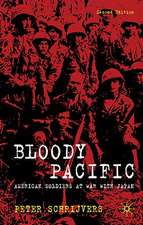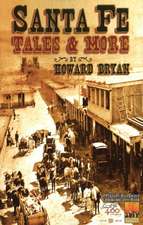Storefront Revolution: Food Co-ops and the Counterculture: Perspectives on the Sixties series
Autor Craig Coxen Limba Engleză Paperback – aug 1994
In the 1960s, the cooperative networks of food stores, restaurants, bakeries, bookstores, and housing alternatives were part counterculture, part social experiment, part economic utopia, and part revolutionary political statement. The co-ops gave activists a place where they could both express themselves and accomplish at least some small-scale changes. By the mid-1970s, dozens of food co-ops and other consumer- and work-owned enterprises were operating throughout the Twin Cities, and an alternative economic network - with a People's Warehouse at its hub - was beginning to transform the economic landscape of the metropolitan Minneapolis-St. Paul area.
However, these co-op activists could not always agree among themselves on their goals. Craig Cox, a journalist who was active in the co-op movement, here provides the first book to look at food co-ops during the 1960s and 1970s. He presents a dramatic story of hope and conflict within the Minneapolis network, one of the largest co-op structures in the country. His "view from the front" of the "Co-op War" that ensued between those who wanted personal liberation through the movement and those who wanted a working-class revolution challenges us to re-thing possiblities for social and political change. Cox provides not a cynical portrait of sixties idealism, but a moving insight into an era when anything seemed possible.
However, these co-op activists could not always agree among themselves on their goals. Craig Cox, a journalist who was active in the co-op movement, here provides the first book to look at food co-ops during the 1960s and 1970s. He presents a dramatic story of hope and conflict within the Minneapolis network, one of the largest co-op structures in the country. His "view from the front" of the "Co-op War" that ensued between those who wanted personal liberation through the movement and those who wanted a working-class revolution challenges us to re-thing possiblities for social and political change. Cox provides not a cynical portrait of sixties idealism, but a moving insight into an era when anything seemed possible.
Preț: 285.16 lei
Nou
Puncte Express: 428
Preț estimativ în valută:
54.57€ • 59.46$ • 45.98£
54.57€ • 59.46$ • 45.98£
Carte tipărită la comandă
Livrare economică 23 aprilie-07 mai
Preluare comenzi: 021 569.72.76
Specificații
ISBN-13: 9780813521022
ISBN-10: 0813521025
Pagini: 170
Dimensiuni: 152 x 229 x 15 mm
Greutate: 0.29 kg
Ediția:None
Editura: Rutgers University Press
Colecția Rutgers University Press
Seria Perspectives on the Sixties series
ISBN-10: 0813521025
Pagini: 170
Dimensiuni: 152 x 229 x 15 mm
Greutate: 0.29 kg
Ediția:None
Editura: Rutgers University Press
Colecția Rutgers University Press
Seria Perspectives on the Sixties series
Notă biografică
Craig Cox, a journalist who was active in the co-op movement, here provides the first book to look at food co-ops during the 1960s and 1970s. He presents a dramatic story of hope and conflict within the Minneapolis network, one of the largest co-op structures in the country. His "view from the front" of the "Co-op War" that ensued between those who wanted personal liberation through the movement and those who wanted a working-class revolution challenges us to re-think possibilities for social and political change.
Cuprins
Ch. 1. Dancing on Dogma
Ch. 2. Reconstructing the World
Ch. 3. Revolutionary Food
Ch. 4. No Bosses Here
Ch. 5. "Criticism, Discussion, Transformation"
Ch. 6. The Facts of Life
Ch. 7. Invasion of the "Stalinoids"
Ch. 8. War!
Ch. 9. The End of Innocence
Ch. 10. The Golden Age
Ch. 2. Reconstructing the World
Ch. 3. Revolutionary Food
Ch. 4. No Bosses Here
Ch. 5. "Criticism, Discussion, Transformation"
Ch. 6. The Facts of Life
Ch. 7. Invasion of the "Stalinoids"
Ch. 8. War!
Ch. 9. The End of Innocence
Ch. 10. The Golden Age
Descriere
In the 1960s, the cooperative networks of food stores, restaurants, bakeries, bookstores, and housing alternatives were part counterculture, part social experiment, part economic utopia, and part revolutionary political statement. The co-ops gave activists a place where they could both express themselves and accomplish at least some small-scale changes. But these activists could not always agree among themselves on their goals.
















